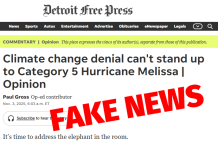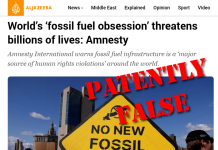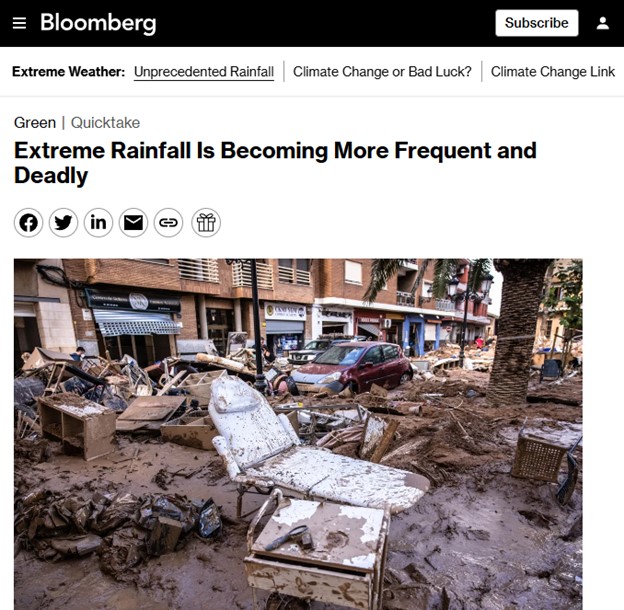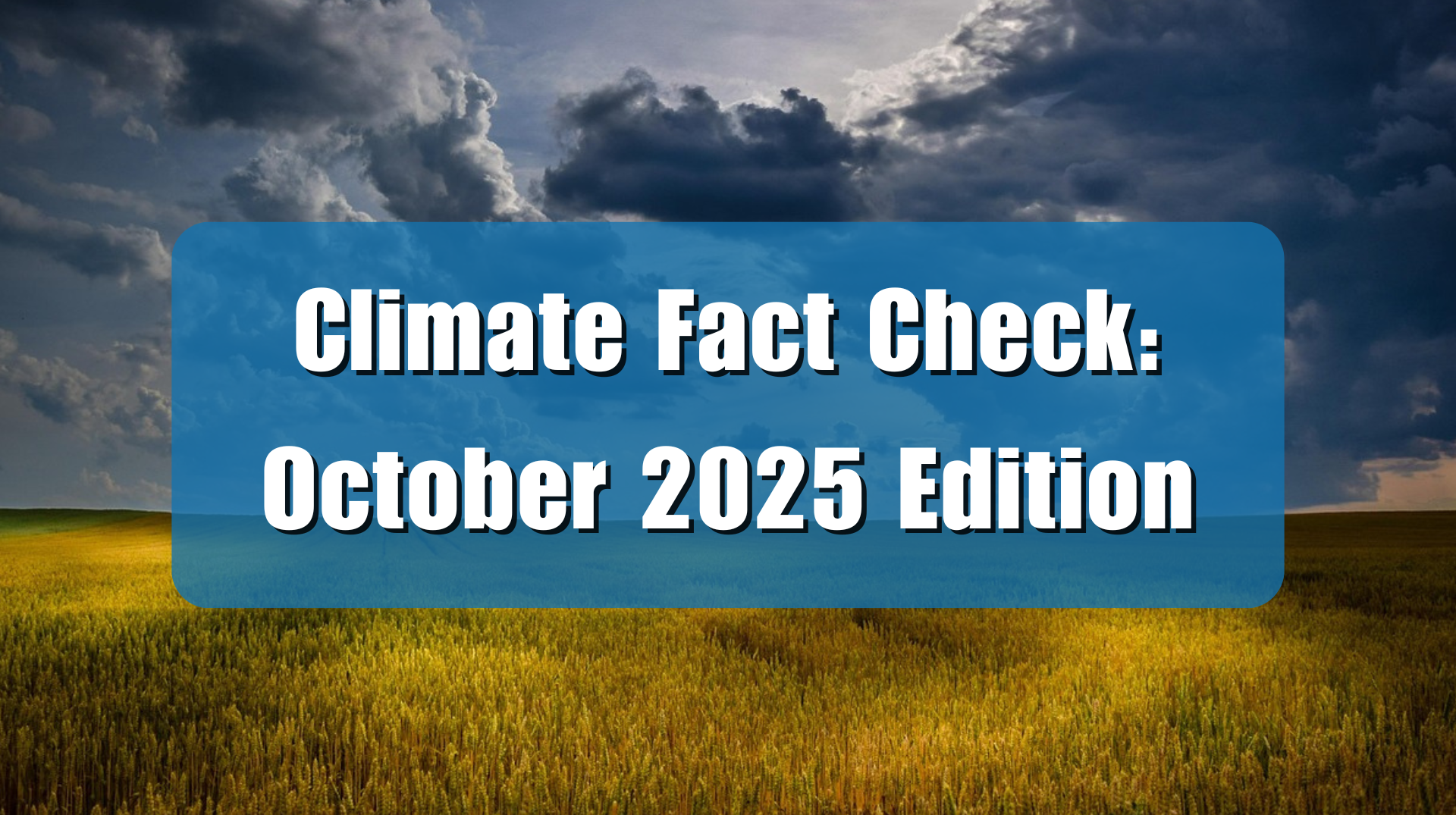A November 4th Bloomberg article, titled “Extreme Rainfall Is Becoming More Frequent and Deadly,” covering the recent floods in Valencia suggests that climate change is producing greater numbers extreme rainfall events that are also more deadly now than before. This is false. Data proves that Bloomberg’s claims fail the truth test since floods aren’t becoming more frequent or severe.
First, it’s important to distinguish between weather and climate. While extreme weather events, like heavy rainfall, are a natural part of weather patterns, they are often wrongly attributed to climate change without actual evidence. As Climate Realism has repeatedly pointed out, many claims that link extreme weather events to climate change data and evidence to show causation. For example, in the case of recent European floods, experts admit that it’s difficult to conclusively link individual events to long-term climate trends without comprehensive studies, yet headlines like Bloomberg’s frequently jump to conclusions about climate change being the cause.
Furthermore, extreme weather events like floods have occurred throughout history, well before the industrial era and the recent rise of atmospheric carbon dioxide emissions. Spain, in particular, has experienced severe floods throughout the centuries due to its unique geographic and meteorological conditions, known as “gota fría” weather pattern, also known as a “cold drop.” Spain’s geographical location makes it susceptible to these well-known local Mediterranean storm patterns. The heavy rainfall followed by floods in Valencia, have tragically been all too common throughout the region’s history driven by well-established natural weather patterns. There is no data supporting the claim that they are a sign of climate change causing worsening weather.
Even reports from the Intergovernmental Panel on Climate Change (IPCC) acknowledge that there is no clear trend in increasing floods, despite claims otherwise. See Figure 1 below:
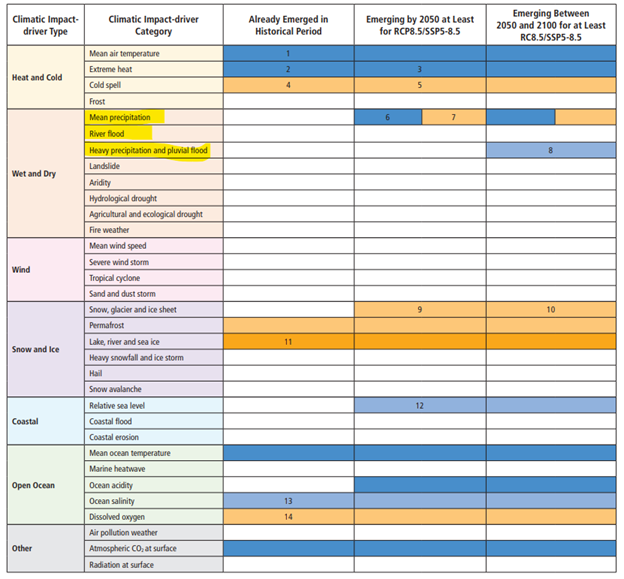
The IPCC findings indicate that, globally, the data does not support a significant increase in the frequency or intensity of rainfall events. Therefore, media outlets attributing every extreme weather event to climate change are engaging in what could be termed as alarmism, rather than reporting based on sound scientific data.
In addition, much of the increased damage from heavy rains resulting in floods in recent years can be attributed to urban expansion and poor land-use planning, particularly in flood-prone areas. As cities like Valencia grow, impermeable surfaces expand, leading to more runoff and higher flood risks when heavy rains occur. The costs of flood damage are often more reflective of increased development and human activity in vulnerable areas rather than a direct consequence of climate-driven increases in rainfall.
In summary, while extreme weather events like the Valencia floods are tragic and warrant strong responses in terms of preparedness and resilience, there is no solid evidence tying this specific event—or the purported increase in such events—to global climate change.
Instead of leaping to conclusions, Bloomberg and other media outlets should focus on reporting about realistic strategies like improved infrastructure, better flood management, and adaptation to natural weather variability—solutions that address flooding problems without resorting to unfounded climate scare tactics.





